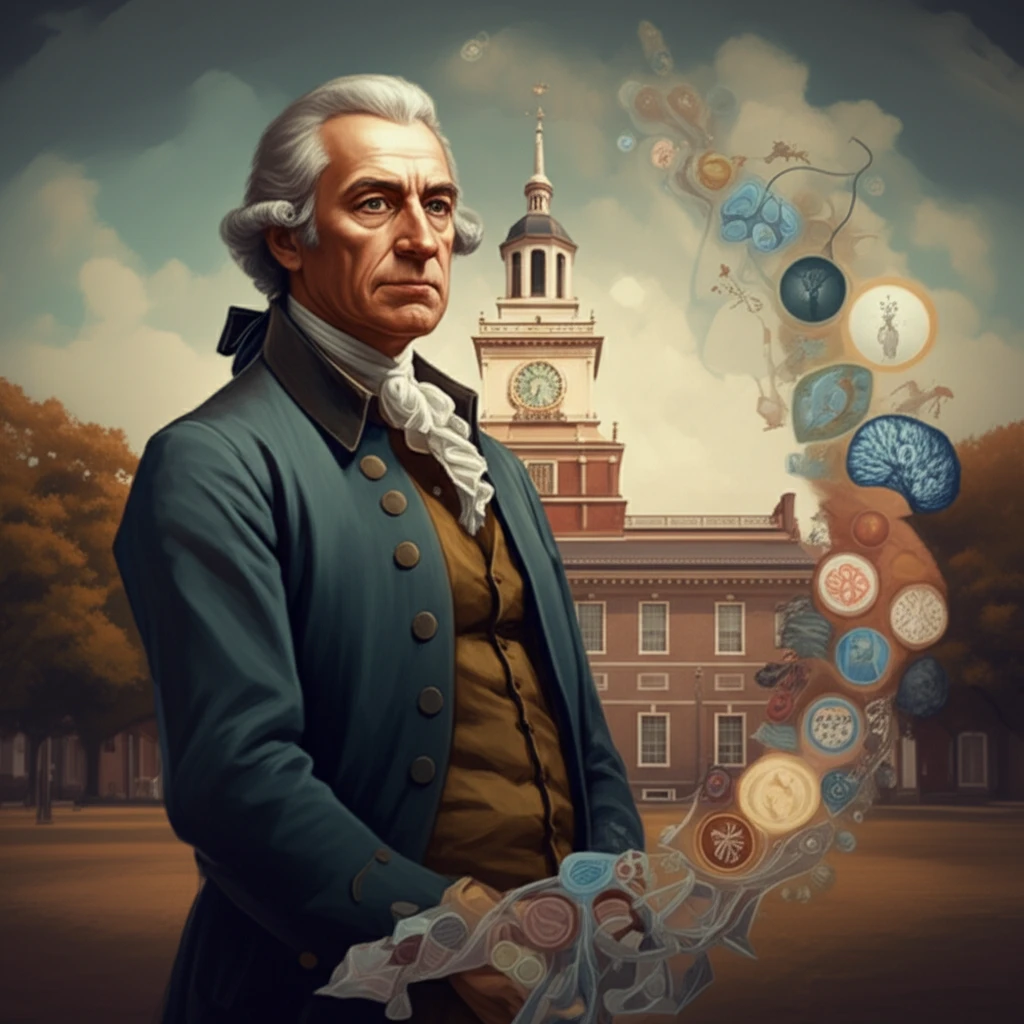
Benjamin Rush: The Founding Father You Didn't Know (But Should)
"Uncover the story of a revolutionary physician, signer of the Declaration of Independence, and pioneer in mental health treatment."
In the pantheon of American Founding Fathers, certain names echo through history – Washington, Jefferson, Franklin. But there are other figures, equally vital, whose stories have faded somewhat with time. Among these unsung heroes is Dr. Benjamin Rush, a man whose contributions spanned medicine, politics, and social reform.
Born in 1745, Rush lived through a period of intense upheaval and transformation. He wasn't just a witness to history; he was an active participant, signing the Declaration of Independence and advising the nascent U.S. government. However, his impact extended far beyond the political sphere. Rush was also a pioneering physician who championed humane treatment for the mentally ill, challenging the prevailing attitudes of his time.
From advocating for public health to fighting against slavery, Rush embodied the spirit of the Enlightenment. His life was a testament to the power of reason, compassion, and unwavering commitment to progress. Understanding Rush is understanding a crucial piece of the puzzle of early America and the evolution of modern medicine.
A Doctor in a Time of Crisis

Imagine practicing medicine in the 18th century. Germ theory was in its infancy, sanitation was poor, and infectious diseases ran rampant. Doctors faced daunting challenges with limited tools and knowledge. Benjamin Rush stepped into this world, dedicating himself to alleviating suffering and improving public health.
- Advocated for improved hygiene and sanitation practices in hospitals and cities.
- Championed the importance of proper nutrition and exercise for maintaining health.
- Fought against the spread of infectious diseases through public awareness campaigns.
Legacy of a Visionary
Benjamin Rush's legacy extends far beyond his lifetime. His advocacy for public health, his pioneering work in mental health treatment, and his unwavering commitment to social justice continue to inspire us today. By understanding his contributions, we gain a deeper appreciation for the complexities of American history and the ongoing quest for a more just and equitable world.
